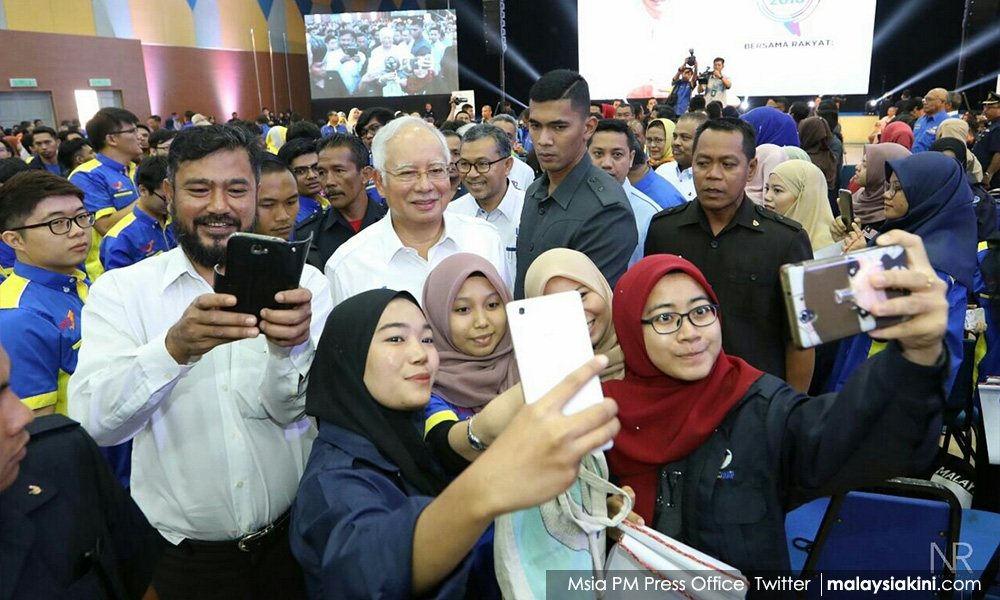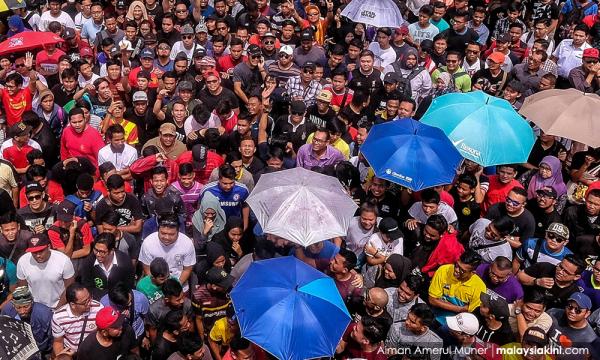COMMENT | Lowering the age of voting to 18 should be commended. But if political parties have begun fantasising about how to court those who are now 14, in order to harvest their votes by 2023, when they automatically become 18 and eligible to be voters, then the democracy of Malaysia is risking the process of "infantilisation".
Malaysia is not making democracy more mature, but merely more youthful, potentially playful, since those in the age cohort of 14 now are normally glued to YouTube and social media.
By migrating all election strategies and intellectual agendas to these platforms, Malaysian political parties have to work within the confines of "info-tainment" and "edu-tainment"; if not sheer "pleasuri-sation" to make the youths like politics or current affairs.
Yet, a mere BA degree in Political Science or Economics, indeed Psychology and Business Administration, takes up at least three to four years of education. Even then, many universities fail to produce serious, rigorous and good graduates.
The average age of the Middle East is 25-30, for example. With unemployment at 18-20 percent, most Arab countries know they have a problem known and identified by the United Nations (UN) as a youth bulge.
A youth bulge is a dangerous thing to have, as they can be volatile, emotional and prone to go into the streets to demonstrate perpetually. While Hong Kong is an ageing society, their youths have demonstrated non-stop against the Extradition Law of the Hong Kong Special Autonomous Region. This was done despite the assurance of Hong Kong Governor Carrie Lam to withdraw and suspend the law, indeed, to step down.
An ageing society by 2023
Malaysia will be an ageing society by 2023, according to the research of Khazanah Research Institute, a fact confirmed by Emir Research Institute as well. Fifteen percent of Malaysia's population will be above the age of 60. By the definition of the UN, Malaysia will soon be an ageing society by the 15th general election.
The youth unemployment of Malaysia is impacted or affected three times more than university graduates. Yet, those at the age of 18 with an O-Level or SPM, will also mimic the behavioural traits of those several years ahead of 18. As a group or collectivity, they normally focus on issues such as cost of living, accessibility to free tertiary education, cheap and affordable housing and disposable income.

However, with a foreign migrant population problem in the country that could be seven million illegal immigrants in size, the foreign workers have deflated the wages of Malaysian workers. Therefore, even those at the age of 18 or above, who are able to hold a job down, would only be paid with a low and nominal income. Cumulatively, they create huge angst, that can backfire badly on a one-term government that has yet to rein all the bureaucrats under its control.
Allowing those in this age cohort to have the power to decide the fate of Malaysia, when the ruling Pakatan Harapan government has not addressed the structural issues of corruption and kleptocracy left over by the previous administration, is dangerous, to say the least.
Malaysian youths at the age of 18 may reach the age of legal consent at 18. But without due training, systematic exposure to rigorous thinking on policies and politics, and indeed their inter-connectivity to economics and the religious and racial issues in Malaysia, Harapan is creating a nuclear youth fission, which it may not necessarily be able to control.
"Malu Apa Bossku," was crafted by Najib Abdul Razak to appeal to those in that age cohort, and it worked. If Najib and PAS have seen them work, and will use all their ill-gotten gains to galvanise these first-time voters, then Harapan has to think and re-think its policy and electoral priorities at hand.
RAIS HUSSIN is a supreme council member of Bersatu. He also heads its policy and strategy bureau.
The views expressed here are those of the author/contributor and do not necessarily represent the views of Malaysiakini.


